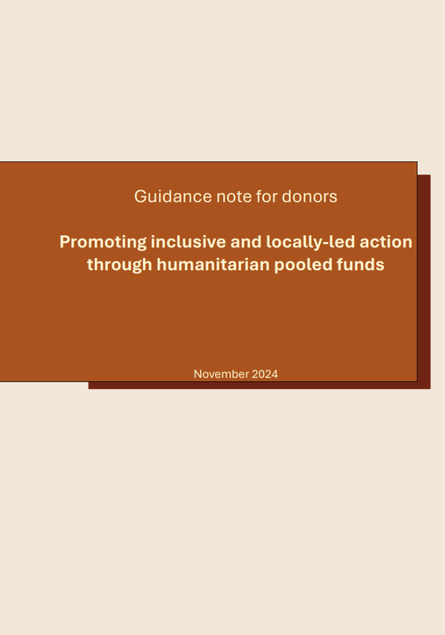November 2024

This Guidance note is intended to inform how humanitarian donors operationalise their reform commitments to promote more inclusive and locally-led action through humanitarian pooled funds (hereafter “pooled funds”). The Guidance note can be used by donors working at headquarters, in regions and in embassies, in their engagement across all humanitarian pooled fund and trust fund mechanisms. It may also be useful to a wider set of humanitarian actors that engage with donors on these efforts.
The Guidance note seeks to reaffirm and help operationalise the Grand Bargain commitments to support local and national responders and “make greater use of pooled funding tools which increase and improve assistance delivered by local and national responders”. It also seeks to operationalise the Grand Bargain commitments on the participation revolution, the recommendations of the Grand Bargain caucuses on funding for localisation, on the role of intermediaries and on risk sharing, and the IASC Guidance note on how to promote gender responsive localisation in humanitarian action.
This Guidance note first outlines nine inter-related principles to guide donors in their engagement with pooled funds as funding partners, and, as appropriate, as board members. The principles are followed by an explanatory note that provides illustrative examples of how to operationalise the principles outlined, as well as best practices. Whilst some of these best practices are focused on donors’ actions, pooled fund management teams are at the heart of most of the best practices listed – and therefore many of these are presented from the point of view of pooled funds themselves.
More detailed case studies are provided in annexes on the OCHA Country-Based Pooled Funds, the United Nations Women’s Peace and Humanitarian Fund (WPHF), the IFRC Disaster Relief Emergency Fund (DREF), the Global Resilience Fund and the Network for Empowered Aid Response (NEAR) Change Fund.